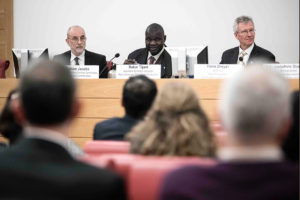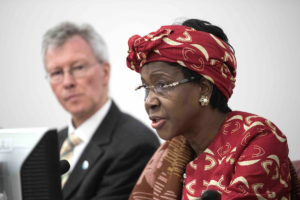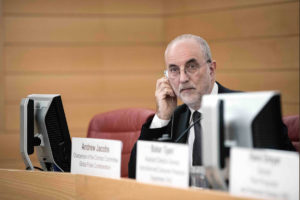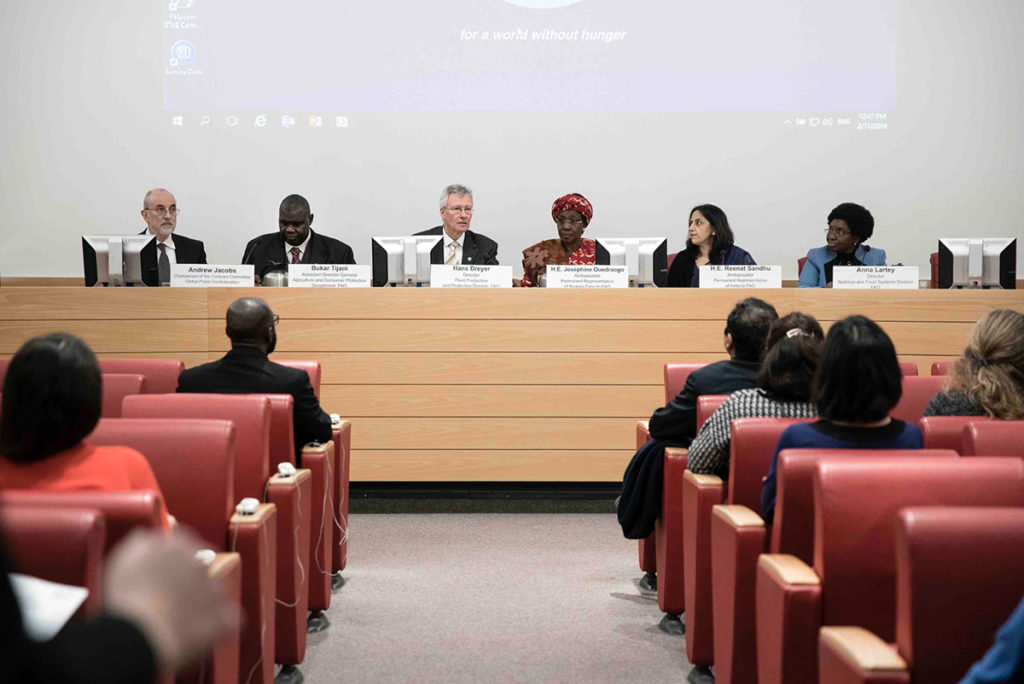The Food & Agriculture Organisation of the United Nations (FAO) held an inaugural World Pulses Day celebratory event in their offices in Rome on Feb 11th 2019. An expert panel made presentations on the Sustainability and Food Security aspects of increasing Pulse production & consumption.
Attendees were welcomed by FAO Assistant Director General Mr. Bukar Tijani. H.E. Ms. Josephine Ouedraogo (Ambassador of Burkina Faso) focused on Food Security benefits of Pulse Production in sub-Saharan Africa. H.E. Mrs. Reenat Sandhu (Ambassador of India) explained the importance of Pulses for nutrition and Food Security in the Indian sub-continent, where governments are training farmers in multi-cropping, planting Lentils in to Rice Fallow to boost domestic production, thereby increasing domestic Food Security.
Ms. Anna Lartey, FAO Nutritionist, gave a passionate presentation on the nutritional benefits of Pulse consumption, proposing that next year all FAO canteens should lead by example by having Pulses on the menu for WPD. Ms. Lartey also called for Pulses to become a focal point in U.N.’s Decade of Action on Nutrition (2016-2025).
Andrew Jacobs represented GPC and drew attention to the collaboration between FAO and the private sector – a first for U.N. International Years and a model the Pulse industry wishes to replicate for World Pulses Day. The attendees were impressed that private industry had managed to organise over 30 international celebratory events in only 2 months since U.N. World Pulses Day had been approved. Appreciation was also noted for the excellent WPD infographics prepared in eight languages, free for all to use in promoting pulses (available to download from worldpulsesday.org) .
FAO’s Final Report on International Year of Pulses 2016 was presented by FAO Legume expert Teodardo Calles, which is also now available electronically on worldpulsesday.org website.
The event was closed by Hans Dreyer, Director FAO Plant Production & Protection Division and leader of FAO WPD project. Mr Dreyer stressed the “exemplary collaboration between FAO and Private Sector”, establishing a framework for continued cooperation and mutual support.



